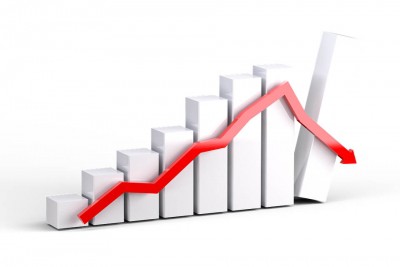New Delhi, Dec 2 : Even though countries plan to increase their fossil fuel production over the next decade, research shows that the world needs to decrease production of the same by 6 per cent per year to limit global warming to 1.5 degrees Celsius, the 2020 Production Gap Report said on Wednesday.
The report mentions India’s revenue share in the recently announced coal auctions as a policy that pushes towards increase in coal production.
In addition, it also looks at India’s Covid-19 economic recovery packages by classifying them into clean energy and fossils.
The report, first launched in 2019, measures the gap between the Paris Agreement goals and the countries’ planned production of coal, oil and gas.
It finds that the “production gap” remains large — countries plan to produce more than double the amount of fossil fuel in 2030 than would be consistent with a 1.5 degrees Celsius temperature limit.
This year’s special issue looks at the implications of the Covid-19 pandemic, and the governments’ stimulus and recovery measures on coal, oil and gas production.
It comes at a potential turning point, as the pandemic prompts unprecedented government action, and as major economies, including China, Japan and South Korea, pledge to reach net-zero emissions.
“This year’s devastating forest fires, floods, and droughts and other unfolding extreme weather events serve as powerful reminders for why we must succeed in tackling the climate crisis. As we seek to reboot economies following the COVID-19 pandemic, investing in low-carbon energy and infrastructure will be good for jobs, for economies, for health, and for clean air,” said Inger Andersen, Executive Director, United Nations Environment Programme (UNEP).
“Governments must seize the opportunity to direct their economies and energy systems away from fossil fuels, and build back better towards a more just, sustainable, and resilient future,” Andersen added.
The report was produced by the Stockholm Environment Institute (SEI), the International Institute for Sustainable Development (IISD), the Overseas Development Institute, E3G, and UNEP.
Dozens of researchers contributed to the analysis and review, spanning numerous universities and additional research organisations.
“The research is abundantly clear that we face severe climate disruption if countries continue to produce fossil fuels at current levels, let alone at their planned increases,” said Michael Lazarus, a lead author of the report and the Director of SEI’s US Centre.
“The research is similarly clear on the solution: government policies that decrease both the demand and supply for fossil fuels and support communities currently dependent on them. This report offers steps that governments can take today for a just and equitable transition away from fossil fuels,” Lazarus added.
To reach Paris alignment, coal, oil and gas would need to decrease by 11, 4 and 3 per cent, respectively, but the report estimates that production of each commodity is set to grow by 2 per cent each year until 2030.
The Covid-19 recovery funds have been disproportionately allocated to fossil fuel development, rather than into burgeoning the clean energy industry.
As of October 14, G20 governments had committed $206 billion to fossil fuel production and related activities, as opposed to just $136 billion for clean fuels.
The report finds Covid-19 recovery plans have generally echoed government positions that were already held before the pandemic, seeing fossil fuel-heavy governments increase their support for oil and gas output, while greener economies have viewed the pandemic as an opportunity to further reform.
Responding to the report, Will Nichols, Head of Environment and Climate Change Research at Verisk Maplecroft, said: “One of the true tests of the pandemic will be how we emerge from it. And the key to this research is that coronavirus can mark a turning point in collaborative global climate efforts.
“Correcting policy direction is crucial, but investors must also take these findings on board. The financial industry has tiptoed towards change, but now needs to start taking huge strides.”
Added Bruce Robertson, Energy Finance Analyst, Gas/LNG, at Institute for Energy Ecnomics and Financial Analysis (IEEFA), “The production gap report gives policy makers clear options to change course and ensure a more liveable climate.”
Disclaimer: This story is auto-generated from IANS service.

